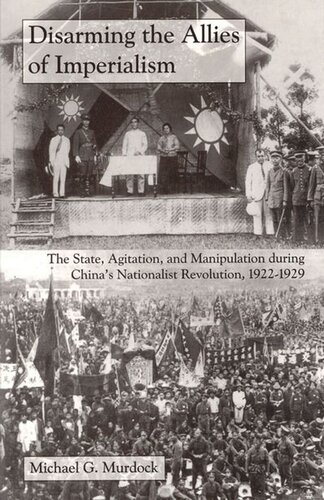

Most ebook files are in PDF format, so you can easily read them using various software such as Foxit Reader or directly on the Google Chrome browser.
Some ebook files are released by publishers in other formats such as .awz, .mobi, .epub, .fb2, etc. You may need to install specific software to read these formats on mobile/PC, such as Calibre.
Please read the tutorial at this link: https://ebookbell.com/faq
We offer FREE conversion to the popular formats you request; however, this may take some time. Therefore, right after payment, please email us, and we will try to provide the service as quickly as possible.
For some exceptional file formats or broken links (if any), please refrain from opening any disputes. Instead, email us first, and we will try to assist within a maximum of 6 hours.
EbookBell Team

4.4
22 reviewsThis study provides a striking new explanation of how China's Nationalist Party (GMD) defeated its rivals in the revolution of 1922–1929 and helped bring some degree of unification to a country torn by class, regional, and ideological interests. Disarming the Allies of Imperialism argues that inconsistency—more than culture, ideology, or any other factor—gave nationalism its unique edge. Revolutionary leaders manipulated revolutionaries and non-revolutionaries alike to advantage their own positions and seize national power, sometimes seeking to protect foreign lives and property and shield Chinese merchants from agitative disruptions, sometimes voting to do the opposite. Exploiting the symbiotic yet contradictory relationship between state-building, which sought foreign ties and international recognition; and low-level agitators committed to confrontational anti-imperialist objectives, top Guomindang leaders were able to manipulate political circumstances to their own benefit. For example, party leaders stirred up anti-Christian sentiment, pitting popular forces against mission schools, while simultaneously intervening to rescue these same schools from agitative destruction, thus "helping" missionaries to soften their attitudes toward the revolution and eventually embrace the new order. Scholars of modern Chinese history and anyone familiar with the growing literature on nationalism will appreciate this work for its elucidation of a complex historical snarl, while undergraduates and scholars outside the China field will find this a useful and accessible study as well.